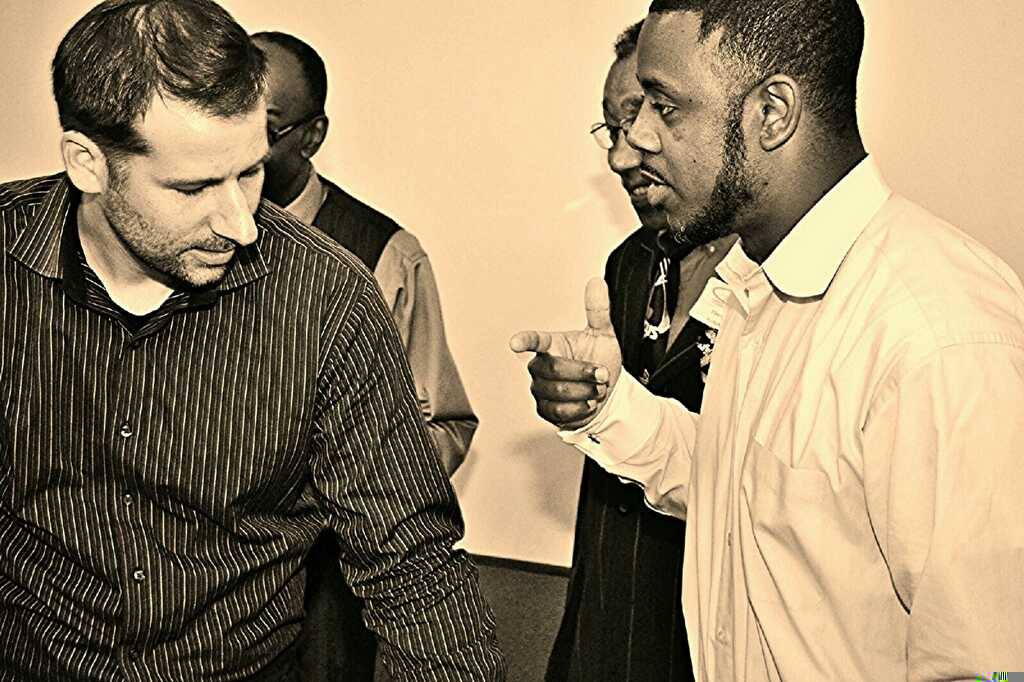6 Things Relationally Healthy Pastors Know that Lead for Transformation
Relationships in life can be one of the most challenging things we navigate in the ministry. Now, consider a pastor leading people through change and transformation…..off the map, in new territory. There are some real landmines to navigate. This is where many pastors find themselves right now.
Consider these 6 things that relationally healthy pastors know who are leading people off the map through transformation.
1. They must stay connected relationally with those they are in conflict with.
For a pastor, the focus can easily be drawn to the individualist responsibilities of study, prayer, teaching, preaching, vision, and planning. Personally, I loved my sermon prep and studying part of my schedule, too much probably. I would spend time in the text, pray, and read through dozens of commentaries and articles. This was often at the expense of connecting with others.
One particular Saturday evening we hosted a funeral at our church. I had preached at the funeral and retreated to my study at the church to prepare for Sunday. One of our dear deacons respectfully sought me out and asked me what I was doing. I thought he would be impressed when I told him I was preparing to proclaim the Word of God for the next Lord’s day. He wasn’t impressed. He said, “there is a family in there that needs a pastor.” He was right.
I had substituted the pulpit ministry for a relational ministry.
I always thought I would lead merely through preaching. I thought “I will preach my way there.” After all, that is what I was trained to do. Ultimately, that only gets you so far in the local church context. Relationships are required.
As I examined my ministry I realized that I was too busy for relationships, especially with people that I sensed conflict. I still remember applying what I learned from John Maxwell. He spoke of walking through the crowd slowly, looking people in the eye and listening. I was the exact opposite. Each Sunday I was running around like a crazy man. People said, “wow, the pastor sure is busy, we better not interrupt him.”
A focus and prioritization on relationships have to be intentional. We lean away from relationships because they are messy, cannot be controlled and we like to be efficient with our time as busy leaders. We cannot be efficient with people, hopefully effective, but never efficient.
Many guys in the ministry struggle with healthy relationships. We struggle to have personal close friends inside and outside of the ministry. When you add in the stress of interpersonal relationships for a pastor who is attempting to lead a church through change or transformation of some kind, the relational stress skyrockets.
The temptation is to flee, flight or freeze. We naturally avoid conflict and distance ourselves from those that we have disharmony.
Avoidance sends the message “this is personal.” The reality is, the conflict when leading a church through change is not typically personal, even though they feel that way based on the emotional and relational stress it causes.
Stay connected relationally.
2. They don’t mistake support from their base for transformational leadership
Support from others makes us feel good, especially when we are riding out conflict over a change in the church. It is helpful to distinguish if this support is from your “base” or if the support includes others. While preaching to the choir still feels good, it is not the end game.
If you are only gaining support from people who already think like you and look like you, you may be struggling with survivorship bias. Survivorship bias is where your previously held beliefs, practices, and thoughts are continually supported and never challenged because you have insulated yourself from differing thinking. Unconsciously you may have kept people with differing thoughts at arms distance, adding to the relational conflict you are experiencing.
When I was teaching college courses at VBC.edu we learned that the accreditation process values a few key things among the faculty. First, they want to see higher degrees of learning through advanced education. Second, they want to see diversity in educational degrees. You don’t want everyone on your faculty and staff to have degrees from the same institution. Pastors need to value learning and have diversity among the sources they learn from.
In World War II many bombers were being shot down. The engineers decided to study the bullet patterns on those bombers that returned and reinforced them with steel. However, one engineer protested. He argued that they were paying attention to the wrong bombers. They needed to learn from the planes who never made it back to base.
3. They must move at a pace most of the church can handle
If you want to go fast go alone, if you want to go far, go together.
Many pastors are driven leaders and we want things done yesterday. Add in youth and we compound the problem with a lack of patience….though some older people seem to be even more impatient! Remember, that if you get so far ahead in your leadership that you are all by yourself, you are not actually leading anyone at that point. You are just taking a walk by yourself.
Leaders must regulate the heat. If you turn the heat of transformation and change up too high and too fast people will get burned. If the heat is too low, then there is no meal to enjoy and everyone struggles with malnutrition or they eat it and get sick. The leader’s job is to regulate the heat as they move the church forward at a pace most can handle.
4. That conflict is expected and par for the course.
For we do not wrestle against flesh and blood, but against principalities, against powers, against the rulers of the darkness of this age, against spiritual hosts of wickedness in the heavenly places. 13 Therefore take up the whole armor of God, that you may be able to withstand in the evil day, and having done all, to stand. Ephesians 6:12
If you came into the ministry so everyone would like you, you chose the wrong vocation.
Know that conflict is par for the course. Conflict is expected. I wish someone told me this. They probably did tell me, I just wasn’t paying attention. Somehow I got the vibes that walking with God, doing things right, great leadership, and so on will help you avoid conflict. I was under the impression that something was always wrong if a conflict occurred. I was wrong, dead wrong. If you believe something is wrong with you or your ministry because you experience conflict, you may have a false belief that needs to be changed.
Fight the temptation to become a peace-monger.
Becoming a peace-monger is when peace and unity become your goal rather than transformation. Unity should be sought and prayed for. Unity should not be at the expense of true transformation.
When people experience loss and change because of transformation in the church they will get angry, very angry. They will lash out against the pastor, the leaders, and others. I have worked with dozens of pastors and the pattern is very repeatable.
Change. Loss. Fear. Anger. Disconnection.
5. They learn from those that are marginalized
Some people in the church will feel marginalized because they have a differing opinion from the pastor or church leaders. Seek them out, stay connected, and learn.
People that have different perspectives are not wrong, just unique.
Read that again and believe it.
Avoid the temptation to discard the relationship. Believe that they have something you need to know. Be inquisitive. Why do they think differently? How many others think this way? Could we be missing something? Be honest. Are they marginalized because of a bias in your leadership? Are you seeking to learn from women, minorities, people who are different? Are you willing to learn from liberals, conservatives, democrats, republicans, young, old, white, black, minorities, male, female, blue-collar, white-collar, introverts, extroverts, and Redskin fans? (that last one is the most difficult)
6. They must develop emotionally
Perhaps the greatest thing holding us back relationally is our underdeveloped emotional IQ. Emotional IQ has become somewhat of a buzzword and trendy topic over the last few years…..for good reason. Many experts have claimed it is the single greatest factor in determining professional success in the work environment that requires high interaction with others.
Pastors need to grow their emotional stamina. This is the ability to stay connected relationally while dealing with their emotions. I’m not speaking of stuffing our emotions. In fact, the opposite. We need to explore them with curiosity. Write them down, consider them and ask ourselves questions like, “why do I feel this way?” “Should I feel this way?” “Is how I feel congruent with Scripture?”
Once we have identified our emotions, we should ask God to reveal to us what is triggering these emotions. We should work with replacing the mental and emotional ruts we dig ourselves into with Scripture. Then we must replace these intrusive and negative emotions with truth.
No doubt, to remain relationally healthy in the ministry requires intentional effort, personal growth, and constant learning. It is a journey well worth it. I pray that you are able to pursue healthy relationships in your ministry as you lead the people around you for life transformation.
If I can help you in any way, please contact me at DevelopMyMinistry.org
Your Brother in the Battle,
Ryan Flanders




